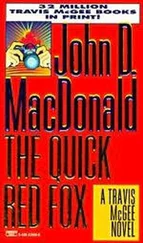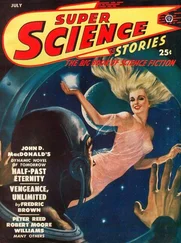Eloise Cable sat on the edge of the pool in her white swimsuit, dangling her legs in the water. Superficially, Eloise seemed a lustier, more obvious version of Carol Killian. They both had tall bodies, dark hair, and an air of brooding reserve. But there was a rather pallid and sickly flavor to Carol’s slenderness. Eloise had a fearful bursting health. Somehow she always looked freshly steamed, massaged and oiled. Her tan had a glowing depth. Her figure had a glossy ripeness which no style of dress could diminish or restrain. She had all the gleaming and somehow ludicrous overemphasis of a calendar girl. She seemed both smugly aware of and obscurely disconcerted by these awesome riches, and carried herself slowly and with great care, as if she carried herself on a tray over rough ground, full to the brim. Her walk was constricted and circumspect, and there was no flirtatiousness about her. In another and more basic way she was unlike Carol Killian. Carol had the nervous, irremediable stupidity of an inbred dog. Eloise, from a far more humble background, had a tough peasant shrewdness.
If it ever astonished Eloise that she had married Martin Cable, the third, she did not show it. And it would have taken a very perceptive observer to detect that she had married better than her background warranted. Palm County had been astonished seven years before when Martin Cable, at the age of thirty-six, had suddenly married the nineteen-year-old daughter of a garage mechanic, a girl not long out of high school, then working as a file clerk in the installment loan department of the bank.
No one had expected Martin Cable to marry, probably because, at thirty-six, he had the bearing and mannerisms and fussy habit patterns of a bachelor of fifty. The first Martin Cable had been a St. Louis businessman who had come to Palm County to fish and hunt, had bought up large tracts of land, and had eventually settled permanently in the county after his retirement from business. The second Martin Cable had been a yachtsman, a drunk, a gambler, a lecher and an international boor, slain at fifty-one by a black Miura bull in a cobblestone street in Pamplona during a fiesta, spun on a dung-caked horn snugged into the lower bowel, dying in the middle of a scream nine days later. Despite cautious testamentary restrictions, he had worked a considerable diminishment of the involved estate the third Martin Cable inherited. The bank was the executor of the estate of the second Martin Cable, and Martin the third was executor of his mother’s estate.
Martin had been a somber child, a dim and diligent young man, and had grown to become a humorless and exacting adult, a bit too jowly to be adequately described as Lincolnesque, vague and thoughtful in manner, aware of the social and civic responsibilities of his name, humble, distant, self-effacing, as is the habit of the inheritors of wealth.
Immediately after his marriage Martin took his bride on a three-month honeymoon, the only vacation of his adult life. Upon their return even the hastiest glance at his wife confirmed the gossip which had attended their departure. Yet even in the obviousness of pregnancy, the change in the girl was total and evident — Ellie Mikersy, the gum smacker, full of prance and halloo, snickerings and bobblings and hot blue glances, was gone forever, to be replaced by Eloise, wife of Martin, a woman who, with a ruthless and astonishing success, immediately patronized those who sought to patronize her. It was a seven-and-a-half-month baby, reportedly premature, but those few who saw it during its first few days were eager to report that the birth weight had been understated by a good five pounds.
A single mystery remained. How and where had the entrapment been consummated? How had such a total wariness been overcome? Yet most of the men of the community found it understandable. Eloise could induce a mild sweat at fifty yards. It was agreed that she had made the optimum use of her natural endowments within her hunting area, and when the baby, Martin IV, matured sufficiently to disclose the unmistakable Cable features, all agreed she had met the minimum ethical standards of the pursuit. Martin IV was now six years old, and his sister, Cooky, was three. They were beautiful children, completely out of control, sweet, active and savage as weasels.
Kat’s chaise was angled toward the pool. Martin and Dial Sinnat sat at a table to her left. Eloise sat on the edge of the pool beyond her feet, with Claire afloat just beyond Eloise. The pool lights had been turned off to lower the bug count. Three flares burned atop tall metal stakes, the orange flames guttering and smoking when the night breeze stirred them, emitting a fragrance of aromatic repellent. The flames made patterns on the dark water of the pool, and on the naked glossy back of Eloise, tapered, smoothly muscled, with an ample breadth across the shoulders to carry the richness of the invisible breasts.
They had been talking, the four of them, carrying on two simultaneous conversations, and Kat had not been listening until Di said, “You keep side-stepping, Martin. By God, I’m going to nail you down.”
The two conversations became one as Claire said, “I didn’t marry a very subtle fellow, Martin.”
“Let me try the question a new way,” Di said. “Two years ago, Martin, you didn’t get down in the mud and help us slug it out, but you were sympathetic when we were fighting that Lauderdale group. That big broad beautiful bay gives this town class. It’s distinctive. For long-run business reasons, it’s a good thing to have, particularly with the other west coast communities filling their own bays up as fast as they can so they all look alike. Now we find out you’re going along with this new group, this Palmland Development outfit. I think we’ve known each other long enough for you to stop hedging and give me some reasons.”
Martin said, vaguely, “I can’t really give you a simple answer.”
“So give me a complicated answer then. If I can’t understand it I’ll stop you.”
“Well... my responsibilities as executor of my mother’s estate come ahead of any personal feelings I might have, Dial. I’m accountable to the probate court. I’d have a certain amount of difficulty explaining why I turned down the best offer ever made for that land. Almost seven hundred feet of bay frontage at three hundred dollars a foot. It comes to more than two hundred thousand dollars. The estate retains the land to the south of that piece, and it will become much more valuable when the development is completed.”
“Is the estate hurting for cash? Are there unpaid obligations?”
“Oh, no! If that was the case, that land would have been sold off long ago. Actually, I’ve been in the position of waiting for a good offer.”
“So you could wait longer?”
“It isn’t that simple. I’d have to justify waiting, on some kind of financial basis.”
“But you have to exercise demonstrable bad judgment before the probate court gets agitated, don’t you?”
Eloise spoke then. “But Martin has other responsibilities too, Di. Responsibilities to the community, as president of the bank.”
“How did you get into this?” Di asked, astonished.
“Don’t be rude, dear,” Claire said.
“Eloise has been taking an interest in this,” Martin said proudly. “She really has had some very sound thoughts about it. Tell Di what you told me, dear.”
Eloise had turned toward the two men. “I told Martin a banker has to do more than just loan money and so forth. He ought to help get things started where a lot of people make money, like a farmer planting things. I mean it’s sort of a responsibility to the community for Martin to do something to help such a big project get started, even though we all might rather have it stay the way it is. It would be different if he was in your position, Di. But a banker has to think of the economic health of the community.”
Читать дальше










![Джон Макдональд - Wine of the Dreamers [= Planet of the Dreamers]](/books/430039/dzhon-makdonald-wine-of-the-dreamers-planet-of-thumb.webp)

